 Petzlover
Petzlover Jagdterrier is originated from Germany but Staffordshire Bull Terrier is originated from United Kingdom. Both Jagdterrier and Staffordshire Bull Terrier are having almost same height. Jagdterrier may weigh 7 kg / 15 pounds lesser than Staffordshire Bull Terrier. Both Jagdterrier and Staffordshire Bull Terrier has same life span. Both Jagdterrier and Staffordshire Bull Terrier has almost same litter size. Jagdterrier requires Moderate Maintenance. But Staffordshire Bull Terrier requires Low Maintenance
Jagdterrier is originated from Germany but Staffordshire Bull Terrier is originated from United Kingdom. Both Jagdterrier and Staffordshire Bull Terrier are having almost same height. Jagdterrier may weigh 7 kg / 15 pounds lesser than Staffordshire Bull Terrier. Both Jagdterrier and Staffordshire Bull Terrier has same life span. Both Jagdterrier and Staffordshire Bull Terrier has almost same litter size. Jagdterrier requires Moderate Maintenance. But Staffordshire Bull Terrier requires Low Maintenance
 Known as the German Hunt Terrier, the Jagdterrier hails from Germany and is a working terrier. In fact, the purpose of the Jagdterrier was for breeders to come up with an improved hunting terrier.
Known as the German Hunt Terrier, the Jagdterrier hails from Germany and is a working terrier. In fact, the purpose of the Jagdterrier was for breeders to come up with an improved hunting terrier.
The dog was developed at the turn of the 20th century, so its not a particularly old breed. There were a number of breeders who broke away from the German Fox Terrier Club, dedicating themselves to creating this newer terrier.
The first Jagdterriers were created by mixing the Old English Fox Terrier with a number of Black and Tan Hunting Terriers. Other dogs used to develop the Jagdterrier were German Pinschers, Welsh Terriers and English Wirehaired Terriers.
Today he is considered a superb hunting dog.The German Hunting Terrier Club was was founded in 1926.
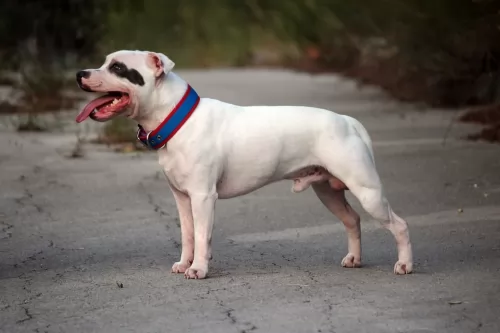 The Staffordshire Bull Terrier was first developed in the northern sections of Birmingham and in Staffordshire, England. The Staffie is a cross between a Black and Tan Terrie and the Bulldog, but had other breeds crossed in over time in order to create a bull-baiting dog and a fighting dog. In the Victorian age these sports were banned but dog fighting went underground and continues on some level today.
The Staffordshire Bull Terrier was first developed in the northern sections of Birmingham and in Staffordshire, England. The Staffie is a cross between a Black and Tan Terrie and the Bulldog, but had other breeds crossed in over time in order to create a bull-baiting dog and a fighting dog. In the Victorian age these sports were banned but dog fighting went underground and continues on some level today.
The Staffordshire Bull Terrier was exceptional at these “sports” due to his build, power and jaw strength. Today’s Staffie is a descendent of those early Bull Terrier crosses. Together with the Bull Terrier and the American Pit Bull, the Staffie also traces its roots back to those original English Bully dogs. All three breeds have the Bulldog in common.
After dog fighting and bull baiting were banned the Stafforshire Bull Terrier was further developed as a companion and pet. Still their reputation as fighting dogs cost them recognition in the official kennel clubs for some time. They finally made the UK registry in 1935, but it was not until 1974 that the American Kennel Club (AKC) accepted them.
 The Jagdterrier is a tenacious hunter, taking on lots of wild creatures such as boars, badgers and even cougars.
The Jagdterrier is a tenacious hunter, taking on lots of wild creatures such as boars, badgers and even cougars.
He is of medium size standing between 33 and 40cm in height and weighing 7-10kg.
He has a coat of black and tan which can also be a dark brown shade or be a charcoal color. The Deutscher Jagdterrier is a compact, well-proportioned dog with a wedge shaped head and flat skull. The ears are set high and go up before they come down to form floppy ears. The tail has always been docked at about one third of the tail. These days it is often left long, being carried raised.
Active, athletic and alert, the Jagdterrier is also social, intelligent, strong-willed and confident. He is a serious hunter but can make an excellent pet, especially when trained and socialized.
He is energetic so he will require owners who are prepared to include him in all their activities. They are good around children, but their hunting side makes them long to be outdoors busy with exciting activities.
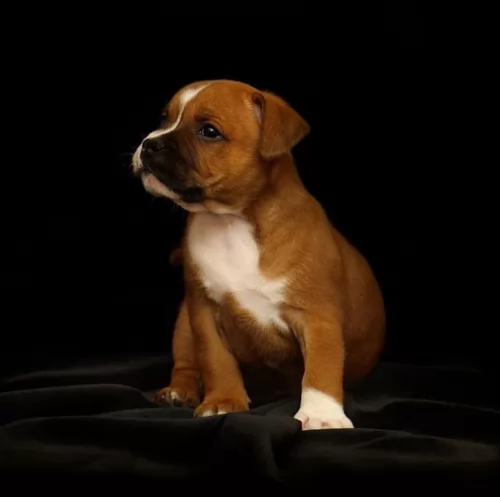 The Staffordshire is a muscular, stocky and unusually strong breed, small to medium size in height and build. They have broad, powerful chests, wide set, strong legs, strong shoulders, broad head with a fairly short muzzle. Their ears are not cropped but they are short and fold over. The coat is stiff, close and short and the tail is medium and carried low. Most Staffies are brown, but they can be red, brindle with white, fawn, black, white or blue.
The Staffordshire is a muscular, stocky and unusually strong breed, small to medium size in height and build. They have broad, powerful chests, wide set, strong legs, strong shoulders, broad head with a fairly short muzzle. Their ears are not cropped but they are short and fold over. The coat is stiff, close and short and the tail is medium and carried low. Most Staffies are brown, but they can be red, brindle with white, fawn, black, white or blue.
 Your Deutscher Jagdterrier is an intelligent dog who enjoys the company of his human family, particularly when they are active and can meet his high energy needs and his desire to be busy.
Your Deutscher Jagdterrier is an intelligent dog who enjoys the company of his human family, particularly when they are active and can meet his high energy needs and his desire to be busy.
They are quite wary with strangers and this makes them alert watchdogs. They are affectionate and playful with children if the children know how to respect them. Because of their hunting skills, they can be a bit of a threat around small animals in the home.
He is a quick learner and responds well to training and socialization. He will thrive on living in the countryside, but wherever you live with your Jagdterrier, give him plenty of exercise, a warm, dry bed, good food and your love and devotion, and he'll respond by being a super pet and companion.
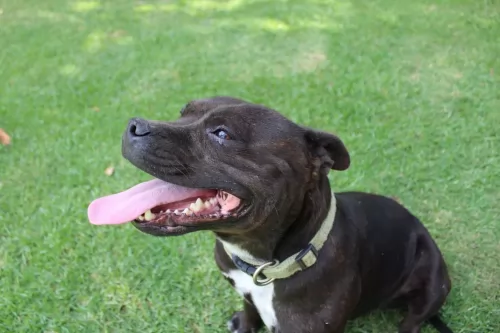 1.Children friendliness The breed adores children but care should still be taken because they are so strong and their jaws are so powerful.
1.Children friendliness The breed adores children but care should still be taken because they are so strong and their jaws are so powerful.
2.Special talents they adore children and they one of the most powerful jaws among canines.
 You’re not going to be taking a sick Jagdterrier to the vet often as this is generally a healthy dog breed who can reach 13, 14 or 15 years of age with good care.
You’re not going to be taking a sick Jagdterrier to the vet often as this is generally a healthy dog breed who can reach 13, 14 or 15 years of age with good care.
He may be prone to a genetic breed disorder known as Primary Lens Luxation. Sometimes people are given prescription eye drops to constrict the pupil ad help the subluxated lens from getting worse.
This is a painful hereditary condition that leads to blindness. It affects many breeds of dog, particularly terrier-type dogs.
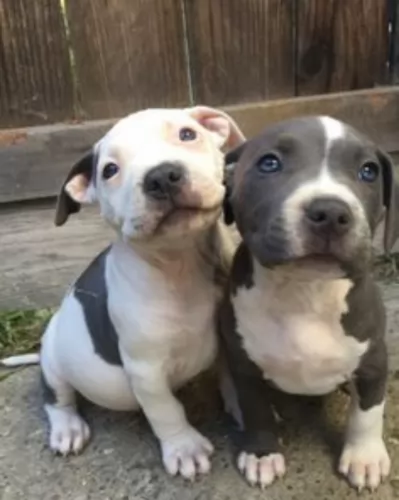 • Patella luxation otherwise known as a slipped kneecap- can cause pain and some lameness.
• Patella luxation otherwise known as a slipped kneecap- can cause pain and some lameness.
• Skin allergies and even a tendency toward Mange which is chronic in some forms and fatal in others.
• Like most active dogs their size, they are susceptible to bloat which can be fatal if not treated immediately.
 Your energetic Jagdterrier will do well on a high-quality dog food, of which there are some good ones on the market.
Your energetic Jagdterrier will do well on a high-quality dog food, of which there are some good ones on the market.
If you do buy a commercially manufactured dog food, make sure that you read the instructions on the packaging so as to adhere to portion control. You can’t afford to have your pet becoming obese as this opens up a host of problems, and it can also shorten your dog’s life-span.
If you invest in high quality kibble, try to add in some nutritious and tasty home-made food such as cooked chicken, some brown rice or pasta and some vegetables. It is always wise to add in some raw meat from time to time as this promotes good health in your dog and prevents skin allergies.
Any diet for a dog should be in keeping with his age and his energy levels. Make sure your pet has constant access to fresh, cool drinking water.
Brush your Jagdterrier’s hair twice a week. It will keep the coat in tip top condition, but it also does your pet the world of good. He loves it when you take time out to be with him and to give him some special time. Brushing him also allows you to check him over for ticks and fleas.
Other grooming aspects for your dog will be to check on his nails and to clip them when they get too long. Ears should also be checked regularly to avoid a buildup of wax and dirt and teeth should be checked as well. Dental disease can lead to a host of illnesses which can be detrimental to the heart and kidneys.
Every dog needs different forms of exercise to remain lean and healthy. Options for exercise for your Jagdterrier can be going on walks, swimming and play time in the backyard.
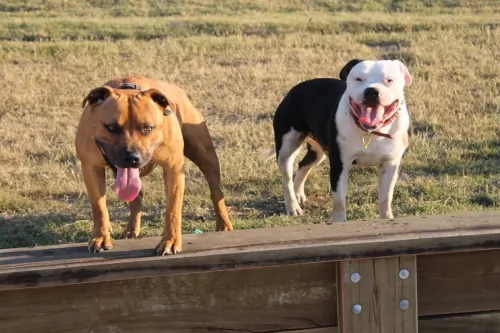 1.Feeding the puppy Don’t over feed as he grows fast. Feed a high quality dog food for medium size puppies. Feed 1-2 and a quarter cups in 3-4 meals per day.
1.Feeding the puppy Don’t over feed as he grows fast. Feed a high quality dog food for medium size puppies. Feed 1-2 and a quarter cups in 3-4 meals per day.
2.Feeding the adult Don’t exercise right before or after eating due to potential for bloat. Feed 1-2 times a day a high quality medium breed dog food.
4. Games and Exercises They are terriers after all and they dig. Need a fairly large yard with a strong fence. They love to play ball, frisbee and can excel at cart pulling.